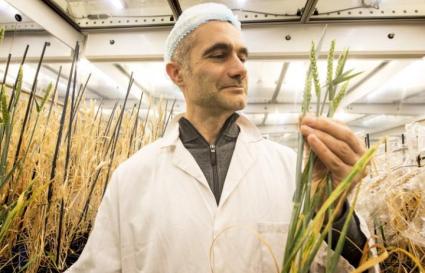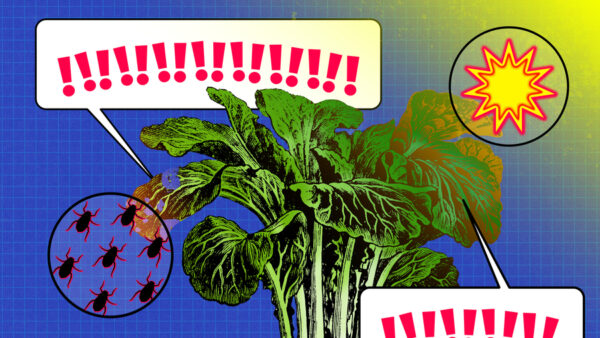A new way of growing plants could be used to feed the world’s exploding population. The method, dubbed “speed breeding,” can grow crops several times faster than other breeding methods. Speed breeding would allow researchers to study plants and improve their genetics faster, speeding up the process of breeding crops that are more resilient to disease and pests.
“Globally, we face a huge challenge in breeding higher yielding and more resilient crops,” Brande Wulff, one of the study’s author and crop genetics project leader at the John Innes Centre in the United Kingdom, says. “Being able to cycle through more generations in less time will allow us to more rapidly create and test genetic combinations, looking for the best combinations for different environments.”
Researchers from the John Innes Centre, University of Queensland and University of Sydney published their findings in Nature Plants on Monday. The process to make plants grow quicker works by putting them beneath lights that are optimized for photosynthesis. Plants absorb blue and red lights for photosynthesis, while reflecting back green and yellow light.
“That’s why they appear to be green to our human eyes,” Wulff says. The “speed breeding” technique uses LED lights in intensive periods of 22 hours per day—which emit more blue and red lights that allow plants to grow quicker.
The enhanced lighting allowed researchers to grow six generations of bread wheat, durum wheat, barley, pea, and chickpea in one year. Canola, which is a form of rapeseed, yielded four generations in one year. It is a significant increase from current commercial breeding methods—and a threefold increase for wheat in particular, according to the study.
Current breeding methods using sodium vapor lamps are ineffective, according to Wulff, because they generate a lot of heat. That adds up to a lot of wasted money, he said. Some say that cycling plants quickly will result in smaller plants with fewer seeds—but in this study, the plants “looked just fantastic.” Wulff said one of his colleagues simply “couldn’t believe it.”
“Anything that we can do to accelerate research—which will produce better crops, more nutritious crops, crops that are higher yielding and more resistant to pests and diseases—is a good thing,” he says.
Improving drought resistance in the wake of climate change among crops is better to study in the field itself—rather than under LED lighting such as this. But, around a quarter of key crops are lost to pathogens, viruses and pests, Wulff said, referencing a 2005 study published in the Journal of Agricultural Science. Tools such as this can allow researchers to study crops quicker to mitigate that loss.
“If we can eliminate just a small part of that loss through breeding crops that are more disease resistant, that surely would be a nice step in the way to improving food security,” he says.
Alongside field-based techniques, “speed breeding” can be used by researchers to improve the understanding of crop genetics overall. The technology still allows for scientists to study plant characteristics such as pathogen interactions, shape and structure as well as flowering time.
“Speed breeding as a platform can be combined with lots of other technologies such as CRISPR gene editing to get to the end result faster,” Lee Hickey, author and plant science researcher at the University of Queensland, says, referencing the genome-editing technology.
As the world population continues to grow, techniques like this will help to improve food security, according to Wulff. The United Nations June 2017 update anticipates the world population will grow to 9.8 billion people by 2050. That’s around 2 billion more mouths to feed.
“Food security is a really, really important issue—not to be underestimated,” Wulff says. “We need every tool in the toolbox to come up with solutions to solve food security.” Without several techniques and tools to work on the issue, Wulff says: “It would be like fighting this issue with one hand tied behind the back.”
Source: Newsweek













